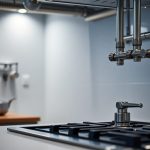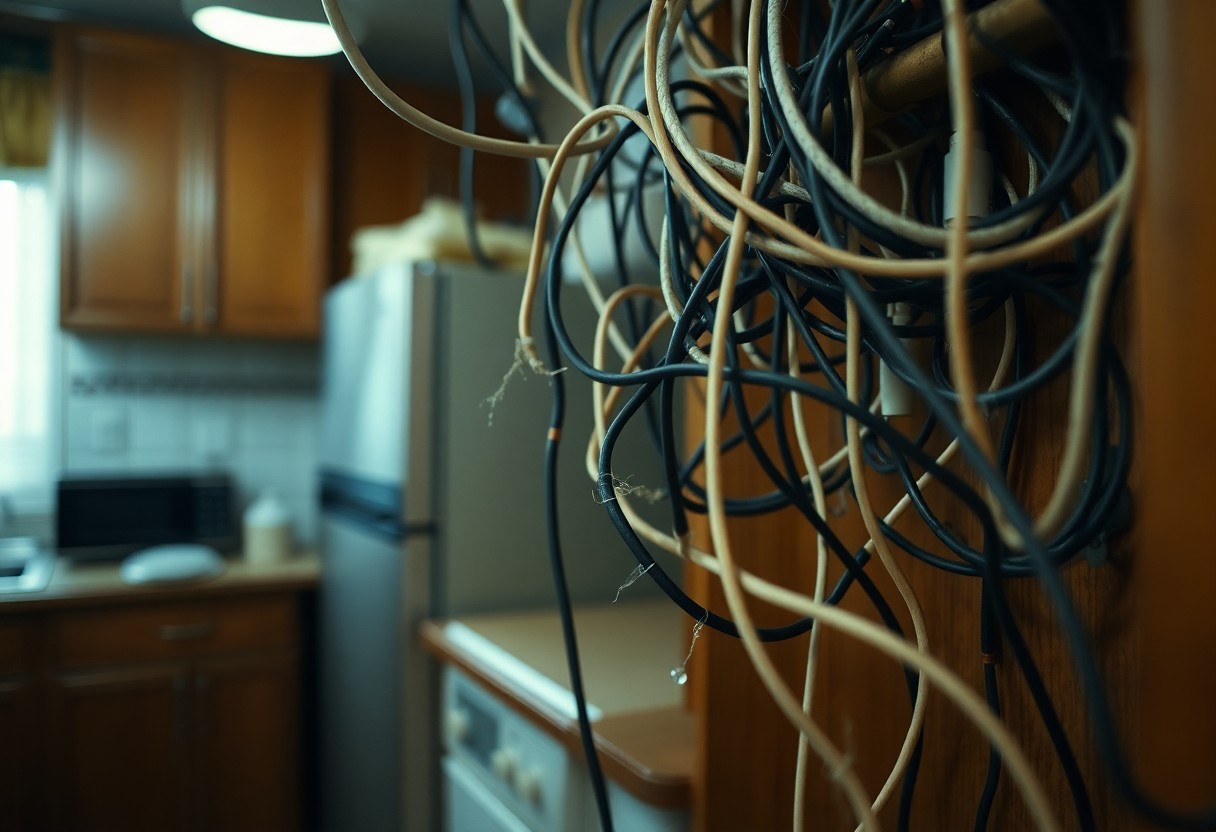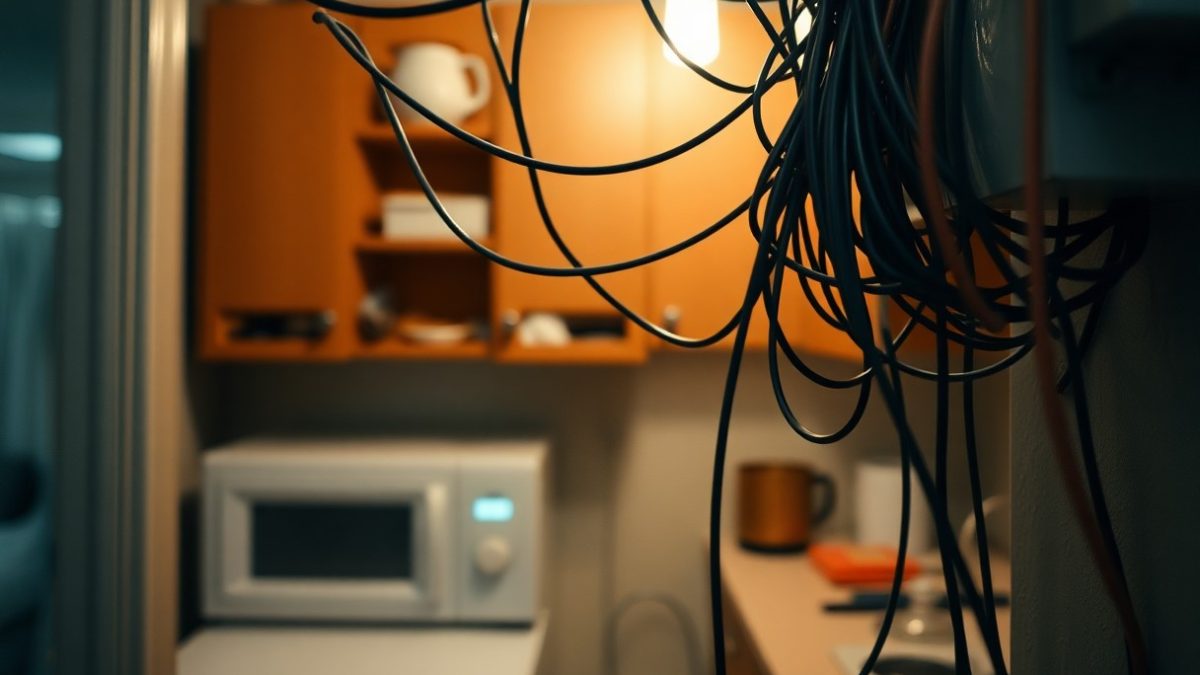
What Veritable Innovations Exist In Gas Installation Technology For Modern Homes?
November 15, 2024
What Singular Considerations Should Be Made For Dual-Fuel Appliance Installations?
November 19, 2024Wiring for your appliances may seem straightforward, but hidden dangers could lurk beneath the surface, threatening safety and efficiency. As you connect various devices, you must be aware of potential issues like poor insulation, outdated materials, and improper installations that could lead to electrical hazards. By understanding these risks, you can take proactive steps to ensure the integrity of your electrical system, protect your appliances, and safeguard your home. In this post, we’ll explore these hidden dangers and how you can identify and mitigate them effectively.
Understanding Electrical Wiring
For homeowners, grasping the fundamentals of electrical wiring is vital to maintaining a safe environment. Electrical systems serve as the backbone of your home, allowing appliances and devices to seamlessly function. By understanding how your wiring operates, you can better recognize potential dangers and ensure that your home remains a safe place for you and your family.
Basic Components of Electrical Systems
Between wires, circuits, and various electrical components, your home’s wiring system is intricate yet vital. At the heart of these systems are conductors that transport electricity from the source to your appliances. Circuit breakers, outlets, and switches work together to manage and control the flow of electricity, ensuring that your devices operate efficiently and safely.
Common Wiring Problems
Common wiring issues can compromise the safety of your home and appliances. Identifying these problems early can prevent hazards such as electrical shocks, short circuits, or even fires. Issues like frayed wires, faulty connections, and outdated systems can arise from wear and tear or poor installation, putting you at risk if not addressed promptly.
In fact, many homeowners remain unaware of the prevalent wiring problems that can develop over time. Faulty connections may create intermittent power supply, causing appliances to malfunction. Overloaded circuits can result in tripped breakers, while improper grounding might lead to electrical shocks. Regular inspections and care can mitigate these risks, ensuring that your electrical system remains in top shape for your safety and peace of mind.

The Risks of Poor Wiring
It is vital to recognize that poor wiring can lead to significant hazards in your home. When electrical systems are inadequately installed or maintained, the risks of electrical fires, appliance damage, and even personal injury increase dramatically. You may not realize that seemingly minor issues can escalate into major problems, making it imperative to stay vigilant about your electrical infrastructure.
Overloading Circuits
Below overloaded circuits become a common issue in households that push the limits of their electrical systems. When too many devices draw power from a single circuit, it can lead to overheating, which may cause the circuit breaker to trip or, worse, ignite a fire. You should always ensure that you distribute the load across multiple circuits to reduce these risks.
Faulty Connections and Short Circuits
The presence of faulty connections in your electrical wiring can pose a serious threat. Loose wires or poor terminations can create high-resistance points, leading to overheating and potential electrical fires. Additionally, short circuits can occur when live wires touch each other or come into contact with grounded surfaces, resulting in a dangerous surge of electricity.
To prevent these scenarios, you should regularly inspect your wiring and connections, especially in older homes. Proper installation and routine maintenance will not only keep your appliances running smoothly but also safeguard your household from electrical hazards. If you notice any signs of wear or malfunction, such as flickering lights or a burning smell, seek professional assistance immediately to address the problem before it escalates.
Hidden Dangers in Appliance Connectivity
There’s a variety of hidden dangers tied to appliance connectivity that you may not be aware of. These risks can arise from improper wiring, mismatched voltages, and even the cumulative effect of wear and tear on older electrical systems. Understanding these potential threats is vital for ensuring your home’s safety and the longevity of your devices.
Incompatibility Issues
On occasion, you may find that your appliances are not fully compatible with your home’s electrical systems. This can lead to inefficient power usage and create unsafe conditions, which might result in overheating or even electrical fires due to the strain on your wiring.
Wear and Tear on Aging Wiring
Wiring deterioration can significantly increase the risk of electrical hazards in your home. Over time, age causes insulation to fray, connections to weaken, and wires to become exposed, resulting in potential short circuits or even shocks when using appliances.
Plus, as your wiring ages, it can struggle to support the demands of modern appliances, which often require more power. This strain can lead to overheating and further damage, presenting a risk not only to your appliances but also to your home’s overall electrical system. Regularly inspecting your wiring and considering upgrades can greatly enhance safety and performance.
Identifying Signs of Electrical Issues
Unlike other household problems, electrical issues can often go unnoticed until they escalate into hazardous situations. By being vigilant and observant, you can identify early warning signs that indicate potential electrical problems within your home. Catching these issues early can not only enhance the safety of your living environment but also prevent costly repairs down the line.
Physical Indicators
Behind every electrical issue often lies physical indicators that can alert you to potential hazards. Look for signs such as unusual discoloration of outlets, burnt or melted plastic, and frayed wires. Additionally, frequent flickering of lights or a persistent burning smell in certain areas of your home may signify that you should investigate further to ensure your wiring is safe.
Performance Anomalies in Appliances
For any appliance in your home, observing performance anomalies can be a strong indicator of underlying electrical issues. If your appliances frequently trip circuit breakers or fail to start when prompted, this may signal a deeper problem within your electrical system.
Hence, monitoring how your appliances behave is important for maintaining an efficient home. Pay close attention to devices that seem to draw excessive power or exhibit irregular functioning. Sudden changes in performance—like strange noises, overheating, or diminished effectiveness—can stem from faulty wiring or inadequate voltage supply. By promptly addressing these anomalies, you can ensure the longevity of your appliances and the safety of your home.
Best Practices for Safe Appliance Connectivity
All homeowners should take proactive steps to ensure the safety of their electrical systems. This includes using high-quality, appropriately rated power strips, avoiding overloading circuits, and being aware of Exposed Wiring: A Hidden Danger in Your Home. Moreover, keeping your connections clean and organized can significantly reduce the risk of electrical hazards. Always prioritize safety when connecting your appliances.
Regular Inspections and Maintenance
After all, neglecting your electrical systems can lead to dangerous situations. Schedule regular inspections of your wiring and connections to catch any potential issues before they escalate. A certified electrician can help identify wear and tear, ensuring that your appliances are safe to use.
Upgrading Outdated Wiring
Regular updates to your wiring are vital to keep up with modern appliance demands. Many homes still use older wiring systems that may not support today’s electrical loads, posing a risk of overheating and fire.
Appliance requirements have evolved significantly over the years, leading to increased energy demands. If you live in an older home, it’s advisable to assess whether your wiring infrastructure can handle newer appliances safely. Upgrading outdated wiring not only enhances safety but also improves energy efficiency. Consulting with a professional can provide you with tailored solutions for your home’s electrical needs.
Professional Help vs. DIY
Not all electrical tasks are created equal; some require professional expertise. While DIY projects can save you money, improper handling of electrical wiring can lead to safety hazards, including shock and fire risks. Assess your comfort level and skillset before deciding to tackle an electrical issue on your own.
When to Call in an Electrician
At various times, it’s wise to call an electrician for specialized tasks. If you experience frequent circuit breaker trips, flickering lights, or burning smells, these could signal serious issues requiring expert intervention. Additionally, if you’re planning a major renovation that includes extensive wiring work, enlist a professional to ensure everything meets code standards.
Safe DIY Tips
After weighing the risks, if you choose to undertake electrical work, adhere to safety measures. Always turn off power at the circuit breaker before starting any project. Use insulated tools, wear rubber-soled shoes, and never work in wet conditions. Your safety is paramount.
- Read the user manuals for your tools and appliances.
- Double-check local codes to ensure compliance.
- Use a voltage tester to confirm circuits are off before touching wires.
This will help keep you safe while working. Educating yourself about basic electrical principles and practices is also beneficial. Make sure to:
- Familiarize yourself with different wiring types.
- Complete small projects first to build skill and confidence.
- Ask questions in online forums or seek advice from knowledgeable friends.
This way, you can prevent accidents and feel more confident in your abilities.
Professional electricians bring extensive training and experience, ensuring that your electrical systems are safe and reliable. They can quickly identify problems and perform repairs with precision. Hiring an expert guarantees compliance with local codes and standards, reflecting your commitment to safety and quality in your home or business.
Conclusion
Presently, you must be vigilant about the electrical wiring in your home, as hidden dangers can pose significant risks to your appliances and safety. Ensuring that your electrical system is up to code and regularly inspected can help protect your devices from malfunctions and prevent potential hazards like fires or electrocution. By being proactive and addressing any issues promptly, you can maintain a safe environment for yourself and your appliances, ensuring longevity and efficiency in your home’s electrical connectivity.

